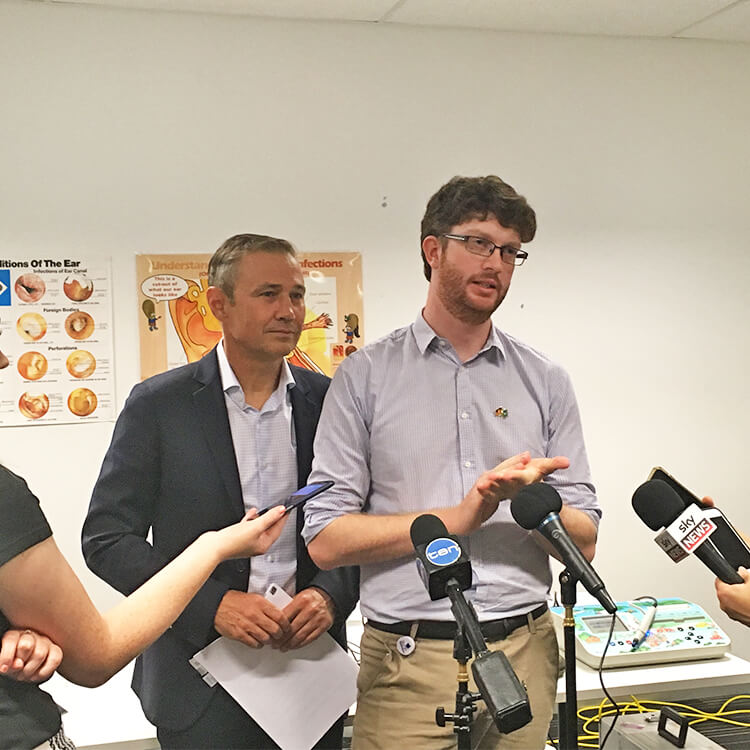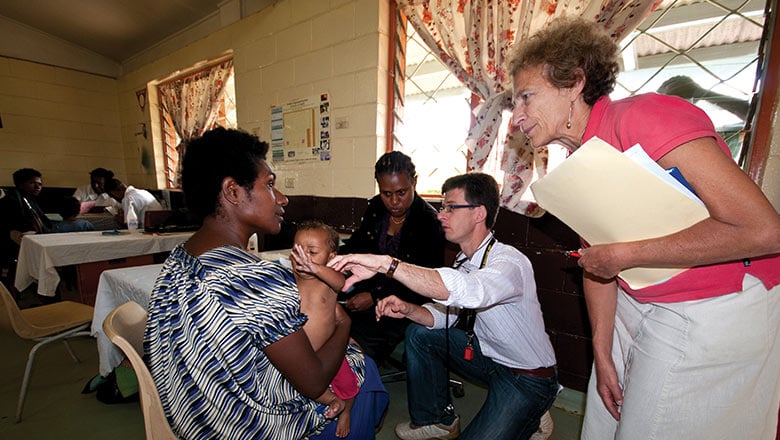Search

Wait times for Aboriginal children suffering ear infections could be reduced to less than four weeks thanks to a new The Kids Research Institute Australia research project

In a WA first, researchers from The Kids Research Institute Australia have shown that Aboriginal babies are 22.5 times more likely to be treated for skin infections than non-Aboriginal babies.

A new study has confirmed the changing pattern of meningococcal disease in Western Australia.

For more than a decade, The Kids Research Institute Australia and Papua New Guinea Institute of Medical Research have been fighting against killer infectious diseases.

The Kids Research Institute Australia researchers have been awarded more than $10 million in research funding from the National Health and Medical Research Council (NHMRC).

Consumers and community members are invited to join us to provide input into our childhood infectious diseases research.

A Kids Research Institute Australia researcher has been awarded $10,000 from the New Independent Researcher Infrastructure Support (NIRIS) award.
The Kids researcher Dr Hannah Moore has been named Woodside Early Career Scientist of the Year at the 2015 Premier's Science Awards.
Australian charity celebrates 20 years of providing meningitis awareness and marks World Meningitis Day with footy star
Researchers are an important step closer to finding a vaccine that protects against a wide range of strains of meningococcal B - the most common cause of mening
